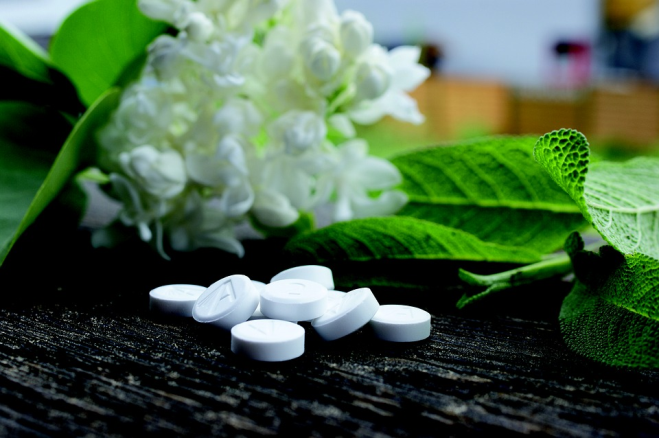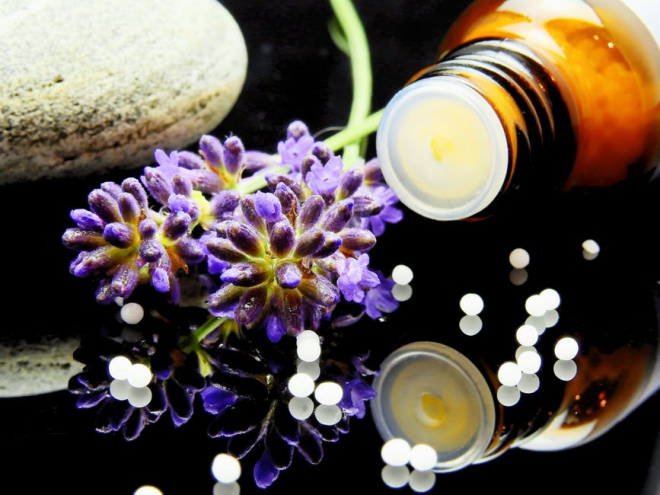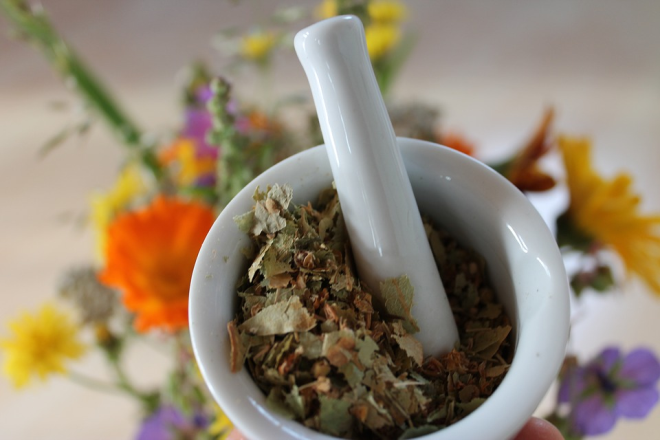
Photo Credit: by Creative Commons Zero - CCO
Once upon a time, homeopathy products were a niche market. But now? Its grown into a $3 billion industry, according to the Food and Drug Administration figures.
And U.S. health officials are cracking down on a growing number of unproven alternative remedies.
The FDA in December of 2017 issued a new proposal for regulating homeopathic medicines, targeting products that pose the biggest safety risks, including those marketed for children or for serious diseases.
According to The Spokesman-Review, a majority of low-risk products would remain on the market, including Zicam Allergy Relief and Cold-Eeze.
But what is homeopathy? And should current users or those interested in taking homeopathic medicine be wary of taking such products?
Homeopathy is a complementary or alternative medicine, also known as the abbreviated CAM.
A central principle of the treatment is that "like cures like," meaning a substance that causes certain symptoms can also help to remove those symptoms. A second principle is “law of minimum dose,” meaning the lower the dose of the medication, the greater its effectiveness. If diluted properly, it will trigger a healing process in the body. However, many homeopathic remedies and medicines are so diluted, no molecules of the original substance remain.

Photo Credit: by WerbeFabrik/Pixabay
So, what’s in these homeopathic remedies? The treatments use ingredients found in nature, derived from substances that come from plants, minerals or animals, and are taken as teas, oils, syrups, powders, tablets or capsules.
According to the National Health Service (NHS) in England, the most common conditions people seek homeopathic treatment for are asthma, ear infections, hay fever, mental health conditions (such as depression, stress and anxiety), allergies (such as food allergies), dermatitis (an allergic skin condition), arthritis and high blood pressure.
However, the risks of taking homeopathic products seem to far outweigh the benefits.
While supporters of homeopathy believe it can treat virtually all diseases, accusing physicians of close-mindedness, in the world of mainstream medicine, it is considered non-scientific nonsense — even a scam.
The pros
Homeopathic remedies are considered generally safe, considered a kinder or a gentler alternative to modern medicine. And the risk of a serious adverse side effect arising from taking these remedies is considered extremely small. As previously mentioned, homeopathic treatments also only contain natural ingredients, as they’re usually derived from plants or minerals. Remedies are considered non-addictive, so you shouldn’t suffer withdrawal symptoms as you would with mainstream medicine. Homeopathic medicine is believed to strengthen the immune system, as well, enabling the body to heal itself. Lastly, practitioners spend a lot of time talking and working with the patients to treat the whole person and not just the disease. In short, they’re tailored to each person and his or her emotional state, lifestyle and other factors.
The cons
To start, the National Health Service and British government do not endorse the use of homeopathy, and homeopathic practices are not subject to any form of legal regulation. This means one does not require any formal training to become a homeopathic physician. Homeopathic medicine can also be very expensive, and treatment can take a long time.
Also, some homeopathic remedies could contain substances considered unsafe, may cause side effects or interfere with the action of other medicines.
And the biggest con of them all? While homeopathic products are treated as drugs under law, they are not supported by modern science. There is no hard scientific evidence that homeopathy is effective in treating any form of medical condition.
Nearly 30 percent of adults report using CAM, according to Mayo Clinic, and doctors are reportedly embracing CAM therapies, too, often combining them with mainstream medical therapies (called "integrative medicine”). However, several hundred studies on homeopathy have been conducted debunking its effectiveness.
In a 2002 report, the British Journal of Clinical Pharmacology debunked homeopathy. Then, in 2015, the effectiveness of homeopathy was debunked yet again. According to the Smithsonian, Australia’s National Health and Medical Research Council analyzed 225 studies on homeopathy — after assessing more than 1,800 papers — revealing “no good quality evidence to support the claim that homeopathy is effective in treating health conditions.”
“The review found no good quality, well-designed studies with enough participants to support the idea that homeopathy works better than a placebo, or causes health improvements equal to those of another treatment,” the statement reads.

Photo Credit: by WerbeFabrik/Pixabay
The study’s authors were also concerned that people who continue to choose homeopathic remedies over proven medicine face real health risks. According to the 2012 National Health Interview Survey (NHIS), an estimated five million adults and one million children used homeopathy in the previous year.
“People who choose homeopathy may put their health at risk if they reject or delay treatments for which there is good evidence for safety and effectiveness,” CEO professor and Australian scientist Warwick Anderson said in the NHMRC statement. “People who are considering whether to use homeopathy should first get advice from a registered health practitioner and, in the meanwhile, keep taking any prescribed treatments.”
So should you risk taking homeopathy medicine? According to the University of California, Berkeley, homeopathic remedies are not recommended. Not only should you be wary of remedies for colds, headaches or other minor problems because of their placebo effect, but homeopathic remedies that take the place of proven medical treatments could prevent you from getting the medical care you really need. It’s also highly advised for both children and adults to stay away from “homeopathic immunizations” (nosodes) to take the place of standard vaccinations. This is considered dangerous.
However, if you are thinking about using homeopathy, Mayo Clinic advises you to tell your health care provider everything and keep him or her in the loop of any and all complementary health practices you use. Bring the product with you to your next appointment with your provider, who can help you determine whether the product might pose a risk of side effects or drug interactions. If you are pregnant or nursing, or you’re thinking of using homeopathy to treat a child, consult your or your child’s health care providers first. Lastly, the FDA warns consumers about over-the-counter products labeled “homeopathic,” including asthma products, as they have not been evaluated by the FDA for safety and effectiveness.
###
Kristine Cannon is a professional writer and editor. You can find her work on Canadian Pharmacy online, SheKnows, Taste Company, Alternative Press, Scottsdale Living, AZRE Magazine, AZ Business Magazine and Experience AZ.